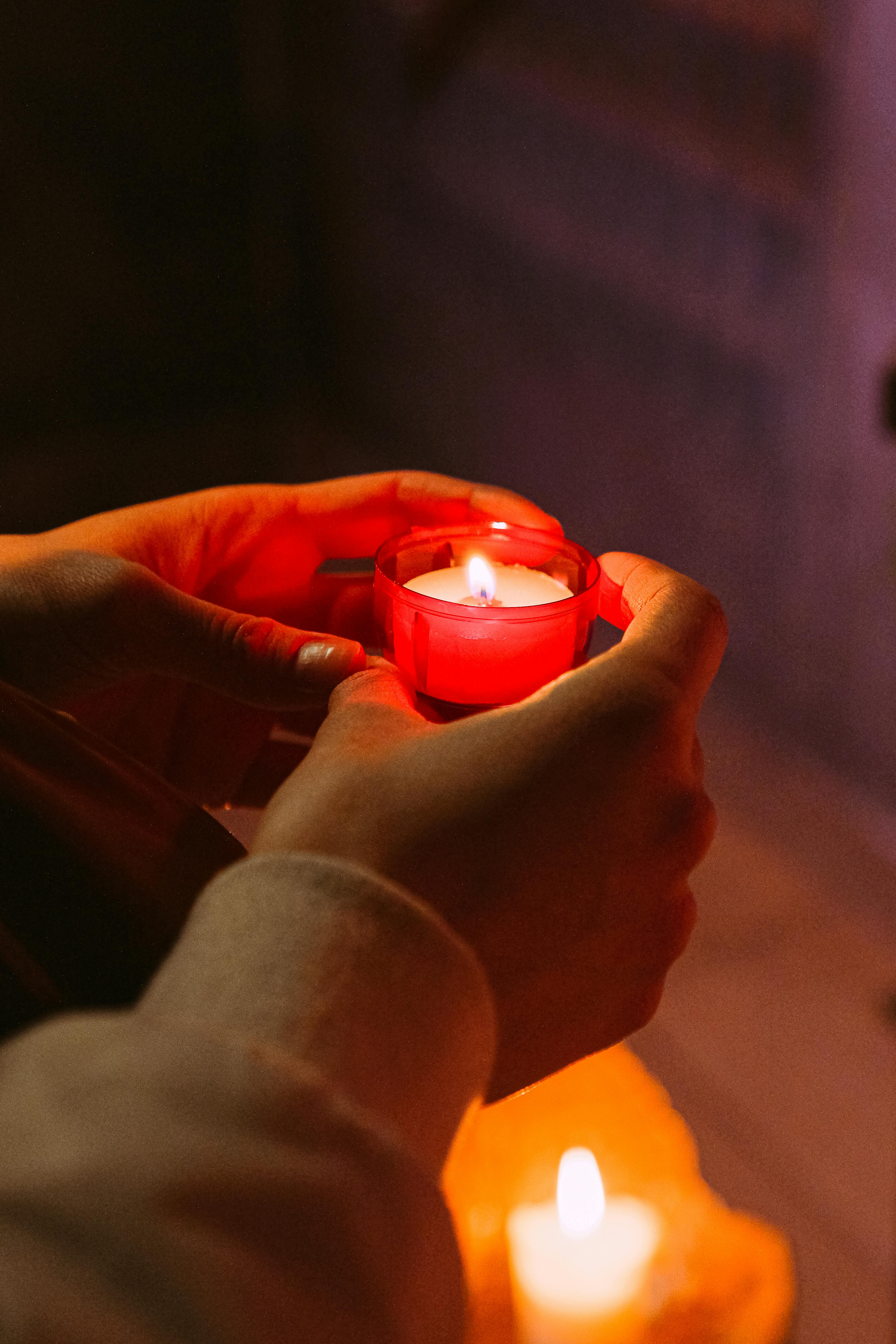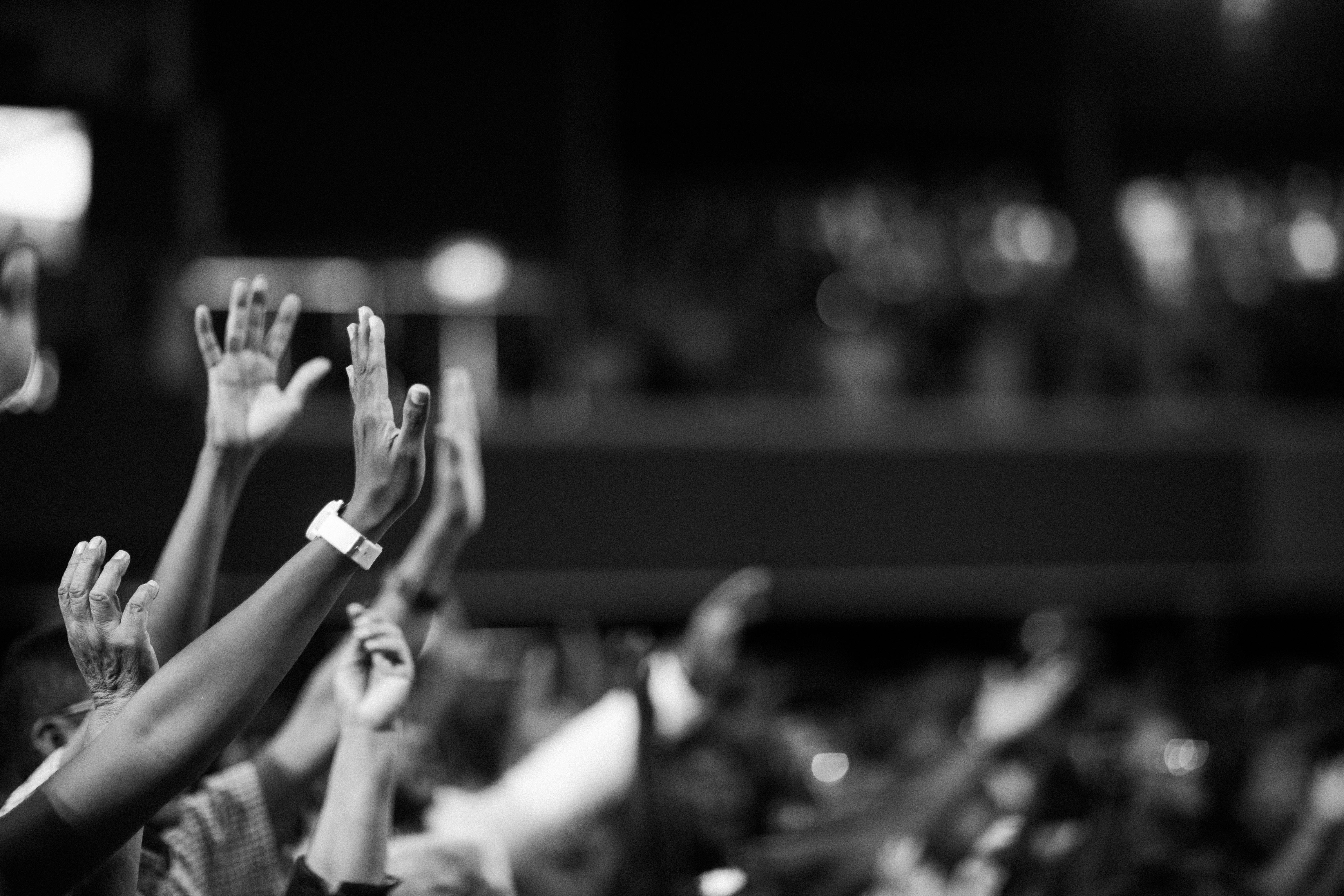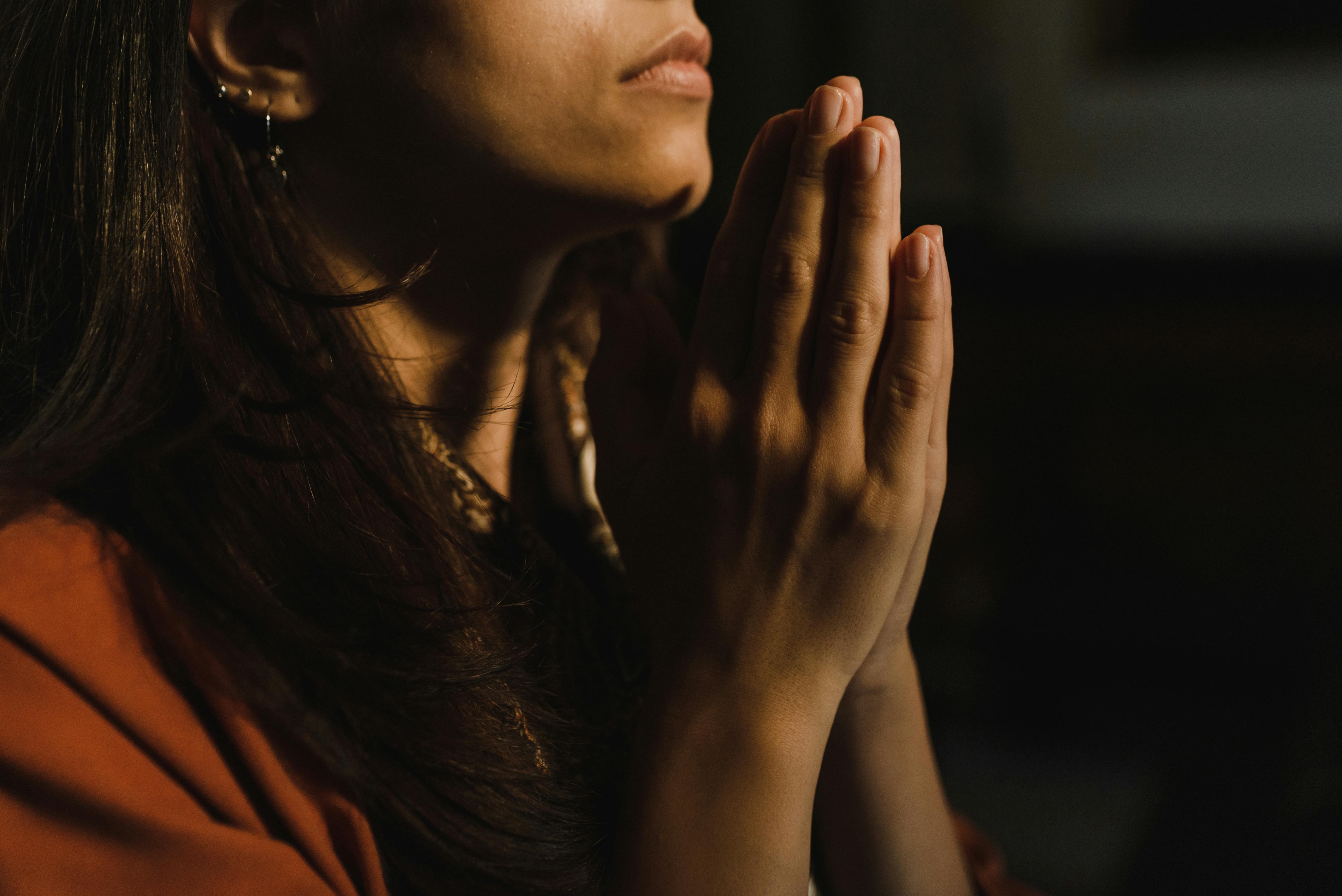My Favorite Movies Of 2024

I’m tempted to say the best film I saw in 2024 was a four-minute Volvo advertisement. If you haven’t seen the viral short film yet, which features cinematography by Hoyte van Hoytema (Oppenheimer, Interstellar), watch it now. It’s encouraging to know so much goodness, truth, and beauty can still be communicated concisely in a cinematic form (even if the ultimate goal is to sell Swedish cars).
Thankfully, other laudable movies were released in 2024 beyond the automobile industry. There were expressions of goodness, truth, and beauty on screens—even in a cinematic landscape increasingly suffering from a storytelling rut, moral confusion, envelope-pushing sexual deviancy, and characters flattened by the blunt hammer of identity politics. In a dark movie landscape, there are bright spots. This list is my attempt to highlight some of these bright spots—movies featuring common-grace virtues Christians can appreciate and celebrate, movies thoughtfully capturing the longings and pain points of contemporary culture, and movies that astutely observe and probe the mysteries of God’s world and man’s place within it.
There were expressions of goodness, truth, and beauty on screens this year.
Don’t take my commendations as wholesale endorsements of the content. Just because I loved a film doesn’t mean I loved everything in it. I watch movies looking for goodness and beauty, and these commendations highlight films where I found things to celebrate. But a movie that contains valuable truth isn’t necessarily free of falsehoods, and a “best” movie doesn’t mean an appropriate movie for all audiences. Though the films listed below are all (in my view) commendable and praiseworthy from a Christian perspective, a few are rated R for language or violence and should be viewed with caution and discernment.
Here are 10 favorites, 5 honorable mentions, and 10 excellent documentaries released in 2024.
Top 10
1. Blitz
Set during the terrifying aerial bombardment of London in World War II, Steve McQueen’s Blitz is a harrowing survival story of a mother (Saoirse Ronan) and son (Elliott Heffernan) separated from one another as the blitzkrieg bombs fall.
Beautifully made as a historical epic, Blitz is also a rousing celebration, even among children, of community and resilience in the darkest circumstances. It’s an ode to the “stiff upper lip” mentality of British tenacity: keeping calm and carrying on even when death is all around. It’s also about the fortitude of family—biological and found—and the empowering hope of communal solidarity. So many scenes in Blitz show groups of people singing, dancing, or playing together even as buildings literally crumble around them.
The film is rife with human moments of tenderness and care between strangers; it’s a nod to the how of survival but also the why. At several moments, McQueen pauses the action to fix our attention on black-and-white dissonant static that resolves into a field of daisies—a motif that underscores Blitz’s strong call to hope and beauty in the ashes. We should keep going, live on, still sing, even when all seems lost.
At a time when the United Kingdom moves toward becoming the latest Western nation to embrace assisted suicide, and spiritual acedia seems endemic across the Western world, this British film speaks a prophetic word of purpose and life into a culture of death. Watch on AppleTV+. Rated PG-13.
2. Sing Sing
One fundamental piece of compelling drama is character change. We delight to see characters morph, sometimes for the worse (see Breaking Bad) but sometimes for the better. Change is always dramatic, but perhaps it’s most dramatic when it’s unexpected and redemptive: characters becoming more than they thought they could be, growing and becoming healthier in ways few expected. This is a key reason Sing Sing is such a beautiful film.
Directed by Greg Kwedar, the movie follows a group of inmates at New York’s Sing Sing prison who are part of a theater program called Rehabilitation Through the Arts. The cast features a couple professional actors (Colman Domingo and Paul Raci) but mostly stars formerly incarcerated alumni of Sing Sing’s program, playing versions of themselves. We thus see the redemptive change of characters not only in the story the film tells but also in the form of how it tells it—starring real changed men revisiting their own stories of changing for the better.
The film is rife with rough language (realistic for the prison setting) but made with real compassion, grace, and hope. It’s one of the most redemptive films of the year. Coming soon to AppleTV+. Rated R for language.
3. Dune: Part Two
In the hands of many movie directors, the sci-fi world of Frank Herbert’s Dune might feel cheesy, nerdy, and fringe. But in Denis Villeneuve’s hands, it’s regal cinematic art. His Dune: Part One (2021) was masterfully rendered and beautiful. But the sequel is grander in every way: better world-building, more interesting character drama, and truly epic cinematography and music.
In terms of immersive, old-school, transportive cinema, Villeneuve’s Dune trilogy (if it ends up being a trilogy) may be on par with the monumental achievement of Peter Jackson’s Lord of the Rings trilogy. If J. R. R. Tolkien’s notion of sub-creation sums up the way our artistic world-building can glorify the Creator whose image we bear, then this is on clear display in the awesomely rendered world of Dune.
From a theological perspective, there’s lots to chew on in Dune: Part Two, which I explore in depth in my full review. I wrote that the film is a “post-Christian artifact” capturing “the simultaneous attraction and revulsion of faith, the desire to retain religious aesthetics and some habits while discarding religious systems of authority.” The film—like many in its huge audience—has complicated feelings toward faith, appreciating faith’s virtues while lamenting its corruptions. I can’t wait to see how Villeneuve further parses out the story’s religious complexity in the trilogy’s next installment. Watch on Max or Hulu. Rated PG-13.
4. Juror #2
At 94, Clint Eastwood is still directing quality movies with his characteristic interest in moral dilemmas and internal conflicts. His latest, Juror #2, is one of his best in decades. Set in Savannah, Georgia, the courtroom drama posits a scenario that makes every viewer ponder, What would I do in this situation?
Husband and soon-to-be father Justin (Nicholas Hoult) reports to jury duty and becomes juror #2 in a high-profile murder trial. A local man is accused of killing his girlfriend on a country road one rainy night the previous year. Justin quickly realizes the woman died on the same road, the same night, as he accidentally hit a deer—or what he thought was a deer—during a moment of looking at his phone to see a text from his wife. He knows the man on trial is innocent. But is he willing to confess the truth if it means his own future, as a “good guy” husband and expectant father, is at risk?
Featuring terrific performances from Hoult as well as Toni Collette (as the prosecuting attorney), Juror #2 ponders the cost of integrity and challenges audiences to consider whether they’d do the right thing even if it would ruin their life. Available to rent. Rated PG-13.
5. A Real Pain
Part travelogue, part buddy comedy, Jesse Eisenberg’s A Real Pain is a real pleasure. The film follows two Jewish-American cousins, David (Eisenberg) and Benji (Kieran Culkin) as they go on a small-group heritage tour of Poland. It’s a trip bequeathed to them by their late grandmother, a Polish Jew who survived the Holocaust and lived a prosperous life in America, the matriarch who still looms large in her grandsons’ spiritual, emotional, and familial geography.
This is a funny-sad film in the best sense, exploring the ways that laughter, tears, and art (Chopin’s piano compositions figure prominently) can help us cope with life’s immense pain. It’s a Holocaust-remembrance movie on one hand (a timely genre in these fraught days for the Jewish people) but also a movie about grace, gratitude, and the different ways we can respond to the unearned, sometimes irrational love and good fortune we’ve been given. In theaters. Rated R for language.
6. Here
From Belgian director Bas Devos, this Brussels-set drama is enigmatic but affecting. Not to be confused with the Tom Hanks movie Here (also released in 2024), Devos’s Here follows a Romanian construction worker and a Chinese grad student who forge an unlikely connection when their paths serendipitously intersect.
The title works on a number of levels. It’s a film about slowing down to be present temporally and spatially, at a time when the pace of life is harried and virtual platforms pull us everywhere but where we are. But “here” also works in the sense of connecting through generous sharing, as in “Here, enjoy this homemade soup” or “Here, look at this moss’s gorgeous shade of green” (soup and moss loom large in the film). It’s a love story only in the subtlest, gentlest ways—not only between a man and a woman but between both of them and the places they inhabit. It’s a movie that calls us to look closer and appreciate the world around us and the people placed in our path. If we’re going too fast, we might miss things that will change our lives. Watch on AppleTV+. Unrated.
7. A Complete Unknown
Anyone with the slightest appreciation for Bob Dylan’s lyrical brilliance and cultural significance will find much to like about A Complete Unknown. From director James Mangold (Walk the Line), the film stars Timothée Chalamet as Dylan and follows the folk troubadour’s earlier career circa 1961 to 1965. It’s based on Elijah Wald’s book Dylan Goes Electric!, and it culminates in Dylan’s infamous headlining set at the 1965 Newport Folk Festival, in which he debuted a new (and for many, unwelcome) electric-rock sound.
Chalamet exceeds expectations in his ability to inhabit Dylan’s iconic style of speaking and singing. But the rest of the cast is strong too. It’s a well-made film with a thoroughly compelling, layered narrative that evocatively captures a particular place in time (the rapidly changing American culture in the 1960s).
The title comes from a lyric in “Like a Rolling Stone,” a pivotal Dylan song that sums up the artist’s elusive, can’t-pin-me-down nature as well as the broader counterculture’s spiritual meandering. One scene shows a folk festival in a church sanctuary, underscoring pop culture’s place as an alternative religion in a secular age. A Complete Unknown shows how people like Dylan take on the role of prophet or priest in a post-Christian culture. In theaters. Rated R for language.
8. Nickel Boys
Facing the daunting task of adapting a Pulitzer-Prize winning novel (Colson Whitehead’s 2019 Nickel Boys), some filmmakers might play it safe. Director RaMell Ross doesn’t. His almost experimental visual style will likely divide viewers (especially those hoping for a more straightforward adaptation), but I found it provocative and effective.
What Ross does with the camera’s point of view powerfully reinforces the movie’s themes of being invisible vs. being seen, the evil dehumanization of racism vs. inherent human dignity (a “deep sense of somebodiness,” to quote Martin Luther King Jr.). We don’t see the face of the main character, Elwood Curtis (Ethan Herisse), until 45 minutes into the film. Up to that point we see through his eyes, as he comes of age and becomes gradually aware of the beauty and ugliness of the world. From there the film shifts point of view a few times, alternating between Curtis and his friend Turner (Brandon Wilson), who help each other endure the harrowing, abusive environment of Nickel Academy, a juvenile reform school in Jim Crow-era Florida.
The camera’s movement also expresses a recurring visual/thematic motif of “looking down” (despair) and “looking up” (hope), and Nickel Boys is full of both. In the powerful final shot, however—perhaps the most jarring final image of any film this year—Nickel Boys calls us to look up, get up, and hope. In theaters. Rated PG-13.
9. Flow
No words are spoken. Neither are there any human characters. Yet it’s a testimony to the power of cinematic storytelling that Flow—an animated masterpiece from Latvian filmmaker Gints Zilbalodis—left me spellbound for 85 minutes and deep in thought long after I left the theater.
Flow’s fascinating premise could be described as Noah’s ark but from the perspective of animals (acting like animals) as they try to survive a massive flood. Bearing some similarities to The Wild Robot in style and substance, the post-apocalyptic, no-humans-in-sight Flow is even more immersive and visceral. Its photorealistic animation, memorable musical score, and narrative ambiguity combine to create an unforgettable moviegoing experience. See it on the big screen if you get the chance. In theaters. Rated PG.
10. Perfect Days
Many of the movies on my list exhibit a posture of gratitude and receptivity toward grace—characters attuned to the miraculous gifts of life, love, and beauty, alert to wonder in ways others are too harried to notice. This is especially evident in Perfect Days, from acclaimed German auteur (and Christian) Wim Wenders.
The Tokyo-set narrative follows an older Japanese man (Kōji Yakusho) who lives alone and cleans toilets for a living. Instead of resenting such dirty work, however, this man finds joy in it: serving people by cleaning their public spaces, smiling at strangers and finding ways to bless them in brief encounters, pausing to take photos of trees because, well, why not? There’s beauty everywhere. And what’s beautiful about Perfect Days is the example it offers of the dignity of humility and unacknowledged service. Available to rent. Rated PG.
5 Honorable Mentions
Of the films I enjoyed this year that didn’t quite make my top 10, these stand out.
The Best Christmas Pageant Ever
Dallas Jenkins’s adaptation of the classic Barbara Robinson novel instantly has a place in the pantheon of great Christmas movies. Frequently laugh-out-loud funny, but also give-me-a-Kleenex poignant, the film offers a subtle commentary on the enterprise of bringing biblical characters to life through the dramatic arts (something Jenkins knows a bit about). Available to rent. Rated PG.
Gladiator II
It’s hard to make a sequel that captures everything great about the first movie but also adds new textures and twists. Ridley Scott pulls it off. The film’s well-developed themes, riveting (if occasionally campy) action, and strong performances (especially Denzel Washington in one of his best roles) combined to make one of my most memorable moviegoing experiences of the year. In theaters. Rated R for violence.
A Quiet Place: Day One
The Quiet Place franchise has been refreshingly original and compelling in the otherwise rehashed sameness of Hollywood’s blockbuster landscape. The third film takes the story back to day one of the alien invasion and is just as thrilling as the first two movies, even as director Michael Sarnoski (Pig) cultivates moments of beautiful quietness (the church scene!) and sacrificial care between strangers. Watch on Paramount+. Rated PG-13.
Thelma
In a culture of victimhood, Thelma celebrates empowerment—even if you’re a 93-year-old widow who just got scammed out of $10,000. Thelma (June Squibb) won’t go down without a fight. With the help of grandson Danny (Fred Hechinger), she sets out to get her money back. My favorite comedy of the year, Thelma also has moments of sweetness and connections between characters young and old. It’s a nonwoke, nonscandalous, delightful story efficiently told. Watch on Disney+ or Hulu. Rated PG-13.
The Wild Robot
On a sheer artistry level, this is one of the best animated movies in years. It’s a bonus that the story—adapted from Peter Brown’s best-selling middle-grade novel—is also stellar, featuring timely insights into parenting, the adaptive resilience of kids, and the ways technology and nature interact. Available to rent. Rated PG.
10 Documentaries
Am I Racist?
The highest-grossing documentary of 2024 clearly resonated with audiences (even if most critics pretended it didn’t exist). Matt Walsh merges social critique and comedy in a Borat-style exposé of the illogical extremities of DEI philosophies and the cottage industry of “antiracism” training. Walsh’s is certainly not the only perspective worth listening to on the complicated subject of racism, but his film deserves a seat at the discursive table. Watch on DailyWire+. Rated PG-13.
Blink
Beautiful and heartbreaking in equal measure, Blink follows a young Canadian family after they find out three of the four kids have a genetic disease that degrades vision and will soon leave them blind. Eager to fill the children’s “visual memory” with as much earthly beauty as they can, while they can, the family embarks on a year-long global tour. As a dad of three young kids who loves big, adventurous family trips, I’m probably the target audience for Blink, but I think it’s a film that will bless anyone. Watch on Disney+ or Hulu. Rated PG.
Daughters
This affecting documentary follows four girls as they prepare for a daddy-daughter dance with their incarcerated fathers, as part of a “Date with Dad” jail program in Washington, DC. The film captures the girls’ complicated emotions as they wrestle with both disappointment about and love for the fathers they rarely see. A missing father looms large in any family, an absence that casts long shadows. Daughters is a lament that captures this well. Watch on Netflix. Rated PG-13.
Girls State
Like its predecessor Boys State (2020), Girls State is directed by acclaimed filmmaking couple Amanda McBaine and Jesse Moss and follows high school juniors in a week of mock elections and government. As I wrote in my full review, the film is fascinating on a number of levels, including as a window into the dynamics that might be widening the partisan divide between Gen-Z men and women. Watch on AppleTV+. Rated PG-13.
Join or Die
A sort of documentary rendering of Robert Putnam’s classic Bowling Alone, Join or Die (read my full review) ponders the societal implications of declining trust and weaker social capital. Directed by Rebecca Davis and Pete Davis (author of Dedicated: The Case for Commitment in an Age of Infinite Browsing), Join or Die opens by describing itself as “a film about why you should join a club . . . and why the fate of America depends on it.” Watch on Netflix. Rated PG.
Music by John Williams
This is a delightful portrait of the world’s most beloved film music composer. It’s a joy to revisit the breadth of Williams’s iconic scores—from Star Wars and Superman to Home Alone and Harry Potter. But it’s also inspiring as a celebration of creative partnership (Williams wouldn’t be who he is without Steven Spielberg, and vice versa) and music’s power to resonate with our souls. Watch on Disney+. Rated PG.
Screams Before Silence and We Will Dance Again
These two documentaries bear witness to the same atrocity: the massacre on October 7, 2023, by Hamas terrorists in Israel. Both films feature eyewitness accounts from survivors and first responders. Both are harrowing to watch in their unflinching documenting of that day’s brutality. They’re historical documents to ensure the world doesn’t forget what happened. Watch Screams Before Silence for free online. Watch We Will Dance Again on Paramount+. Rated TV-MA.
Sugarcane
Films like this are difficult to watch but essential to take seriously. Following an investigation into abuse and infanticide in Catholic-run Canadian Indian residential schools, Sugarcane powerfully captures the way church abuse shatters lives for generations and does lasting harm to Christ’s mission. Still, exposing these injustices and atrocities—which many would like to forget—is essential for healing, learning, and growing. Watch on Disney+ or Hulu. Rated TV-MA.
Wild Wild Space
I love documentaries where I learn a lot about a subject I previously knew nothing about. Wild Wild Space is like that. It’s about the new technological and business frontier of space. The film follows a couple of rocket startups seeking to follow in the successful steps of Elon Musk’s pioneering SpaceX. “Whoever controls space may very well control the future of humanity,” one character says early on. And by the end of this eye-opening documentary, you’ll believe it. Watch on Max. Rated TV-MA.


